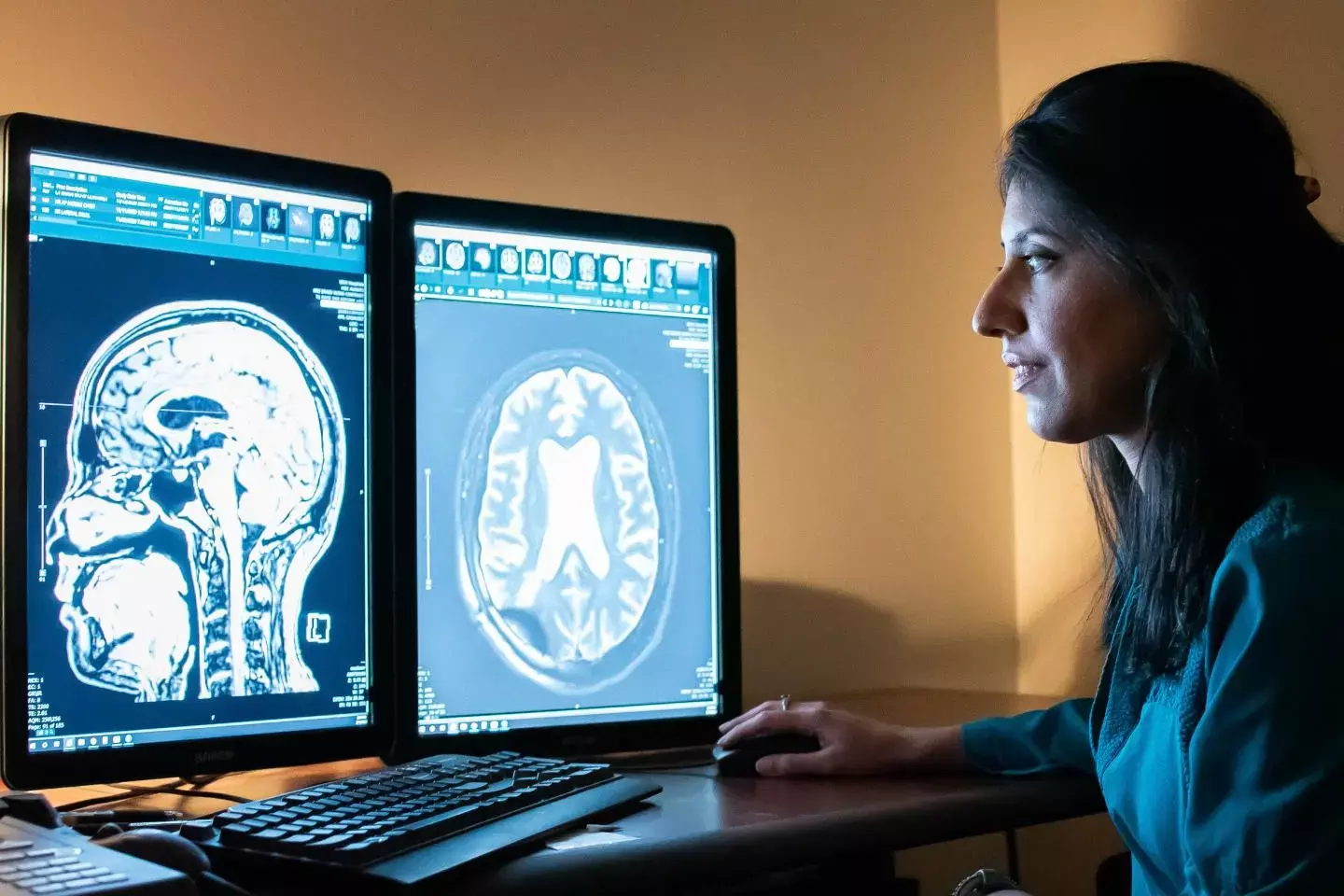- Home
- Medical news & Guidelines
- Anesthesiology
- Cardiology and CTVS
- Critical Care
- Dentistry
- Dermatology
- Diabetes and Endocrinology
- ENT
- Gastroenterology
- Medicine
- Nephrology
- Neurology
- Obstretics-Gynaecology
- Oncology
- Ophthalmology
- Orthopaedics
- Pediatrics-Neonatology
- Psychiatry
- Pulmonology
- Radiology
- Surgery
- Urology
- Laboratory Medicine
- Diet
- Nursing
- Paramedical
- Physiotherapy
- Health news
- Fact Check
- Bone Health Fact Check
- Brain Health Fact Check
- Cancer Related Fact Check
- Child Care Fact Check
- Dental and oral health fact check
- Diabetes and metabolic health fact check
- Diet and Nutrition Fact Check
- Eye and ENT Care Fact Check
- Fitness fact check
- Gut health fact check
- Heart health fact check
- Kidney health fact check
- Medical education fact check
- Men's health fact check
- Respiratory fact check
- Skin and hair care fact check
- Vaccine and Immunization fact check
- Women's health fact check
- AYUSH
- State News
- Andaman and Nicobar Islands
- Andhra Pradesh
- Arunachal Pradesh
- Assam
- Bihar
- Chandigarh
- Chattisgarh
- Dadra and Nagar Haveli
- Daman and Diu
- Delhi
- Goa
- Gujarat
- Haryana
- Himachal Pradesh
- Jammu & Kashmir
- Jharkhand
- Karnataka
- Kerala
- Ladakh
- Lakshadweep
- Madhya Pradesh
- Maharashtra
- Manipur
- Meghalaya
- Mizoram
- Nagaland
- Odisha
- Puducherry
- Punjab
- Rajasthan
- Sikkim
- Tamil Nadu
- Telangana
- Tripura
- Uttar Pradesh
- Uttrakhand
- West Bengal
- Medical Education
- Industry
Increased risk of symptomatic intracerebral hemorrhage after intravenous thrombolysis

Chandigarh’s PGI Builds India’s Largest Unified Neurology and Neurosurgery Facility
CREDIT
Caylie Silveria/West Virginia University
Following intravenous thrombolysis (IVT) for acute ischemic stroke, fibrinogen depletion dramatically raises the risk of symptomatic intracerebral hemorrhage (sICH) and severe bleeding, says an article published in the Journal of Stroke.
Intravenous thrombolysis for acute ischemic stroke can result in deadly consequences such as symptomatic intracerebral hemorrhage and significant bleeding. Therefore, Michele Romoli and colleagues carried out this research to find out how serious bleeding incidents are affected by early fibrinogen depletion following IVT.
In this observational multicenter prospective cohort research, 1678 patients had IVT for acute ischemic stroke at 6 Italian sites in a line, and their fibrinogen concentrations were measured at baseline, two hours after IVT, and six hours after IVT. After two hours following IVT, fibrinogen depletion was defined as a drop below 200 mg/dL or as a drop below 50% of baseline fibrinogen levels. The two main outcomes were sICH and significant bleeding, which was defined as lethal hemorrhage, a hemoglobin level drop of more than >2 g/dL/>1, more than one unit of transfusion, or bleeding at a critical location. The following outcomes were also observed: (1) any ICH, (2) any bleeding, (3) fatal ICH, and (4) sICH as defined by ECASSII. A modified Rankin Scale score of 0 to 2 after three months was considered to be a good functional recovery.
The key findings of this study were:
1. Major bleeding (n=297) and sICH (n=116) were linked to a reduced rate of satisfactory functional recovery (P0.001) out of the 1678 patients included in the study.
2. Despite equal fibrinogen levels at admission, persons with sICH, significant bleeding, and all other bleeding outcomes had higher rates of fibrinogen depletion after 2 hours following IVT.
3. sICH and substantial bleeding were still significantly predicted by fibrinogen depletion in the backward stepwise multivariable logistic regression model.
4. Fibrinogen depletion may be responsible for 31% of sICH cases. Due of the increased risk of significant bleeding and sICH, there is a link between fibrinogen depletion and a poorer clinical outcome at 3 months following stroke (P=0.012).
In conclusion, fibrinogen depletion is a separate risk factor for bleeding, therefore regular evaluation may be taken into account to stratify the risk of ICH. Investigations into the reduction of bleeding risk require early fibrinogen repletion trials.
Reference:
Romoli, M., Vandelli, L., Bigliardi, G., Naccarato, M., Moller, J., Balestrino, M., Giammello, F., Gentile, M., Dell'Acqua, M. L., Manganotti, P., Musolino, R. F., … Zini, A. (2022). Fibrinogen Depletion Coagulopathy Predicts Major Bleeding After Thrombolysis for Ischemic Stroke: A Multicenter Study. In Stroke. Ovid Technologies (Wolters Kluwer Health). https://doi.org/10.1161/strokeaha.122.039652
Neuroscience Masters graduate
Jacinthlyn Sylvia, a Neuroscience Master's graduate from Chennai has worked extensively in deciphering the neurobiology of cognition and motor control in aging. She also has spread-out exposure to Neurosurgery from her Bachelor’s. She is currently involved in active Neuro-Oncology research. She is an upcoming neuroscientist with a fiery passion for writing. Her news cover at Medical Dialogues feature recent discoveries and updates from the healthcare and biomedical research fields. She can be reached at editorial@medicaldialogues.in
Dr Kamal Kant Kohli-MBBS, DTCD- a chest specialist with more than 30 years of practice and a flair for writing clinical articles, Dr Kamal Kant Kohli joined Medical Dialogues as a Chief Editor of Medical News. Besides writing articles, as an editor, he proofreads and verifies all the medical content published on Medical Dialogues including those coming from journals, studies,medical conferences,guidelines etc. Email: drkohli@medicaldialogues.in. Contact no. 011-43720751


